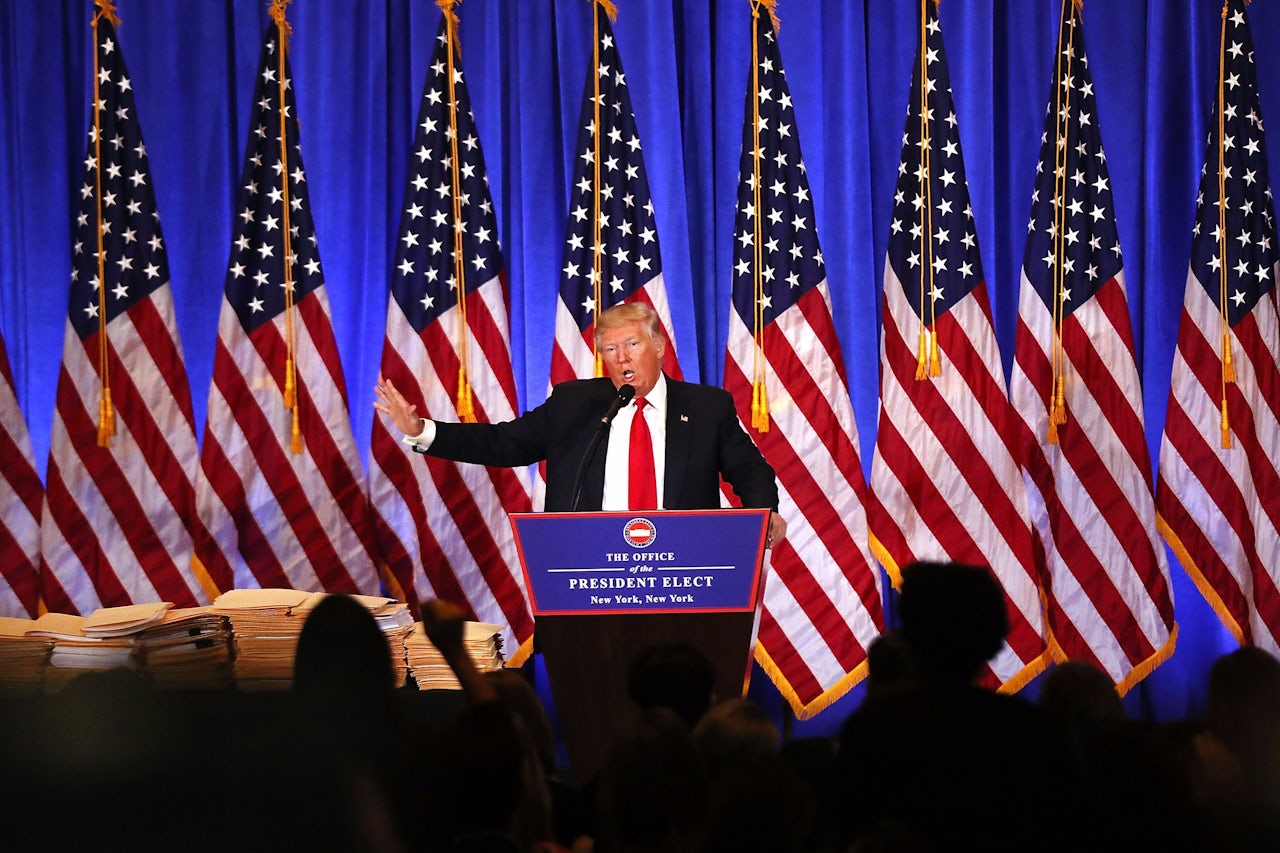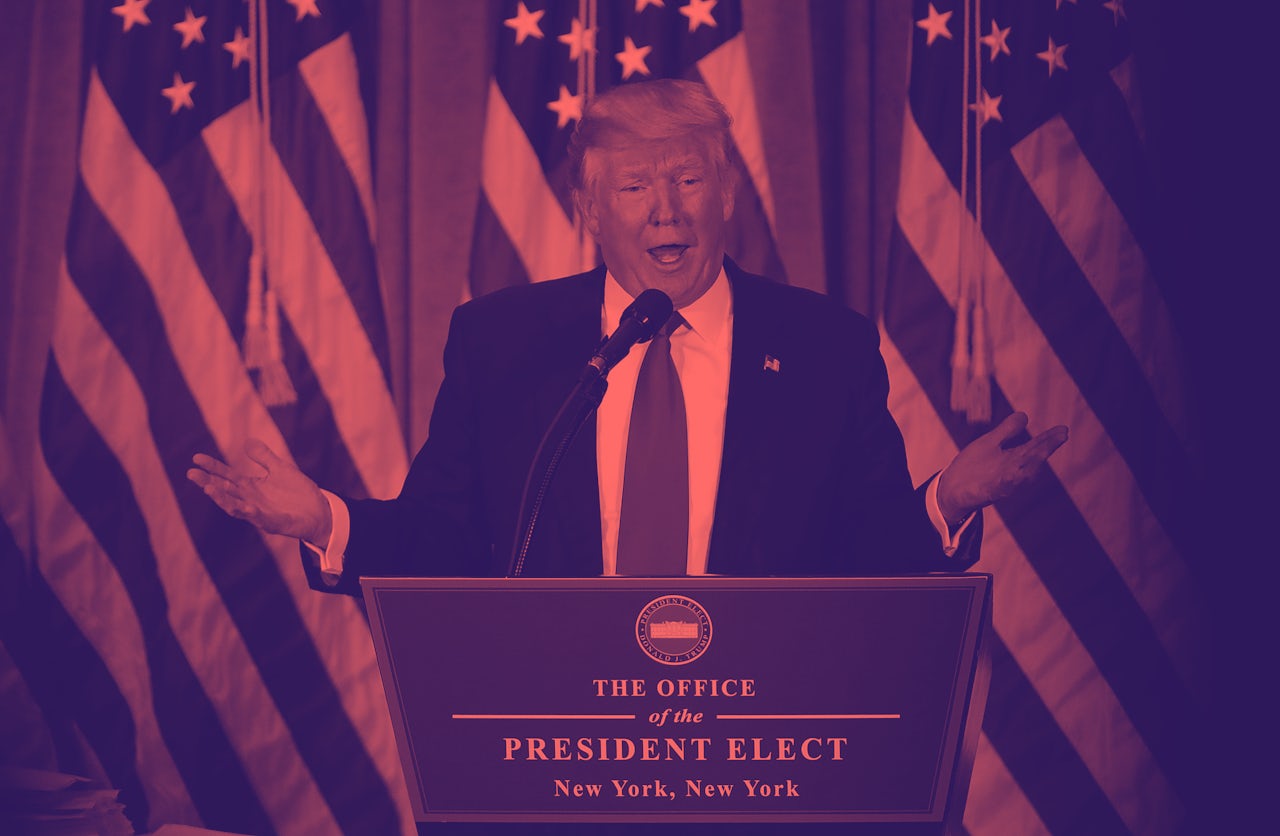After drenching the run-up to the 2016 election in mud, media pundits are now bathing in the waters of righteous indignation, parading their virtue by denouncing BuzzFeed for doing what every mainstream outlet did in the two weeks before Trump’s victory: publish an unverified mess of leaks pertaining to an ongoing investigation of a major politician.
To be sure, there are grounds for criticizing BuzzFeed’s decision to thrust “golden showers” into the national spotlight (and to thereby suffer, among other injuries, a sharp rebuke for “kink-shaming” from Piss-Play Twitter). As Josh Barro wrote in Business Insider, BuzzFeed deployed a Trumpian rumormongering logic in leading with the nitty gritty: “Many people are saying something very serious, very serious, about what Donald Trump was up to at the Ritz Carlton,” he wrote, channeling the president-elect. “We’d better get [it] out there so everyone can figure out exactly what’s going on.”
The problem is, the Trumpian logic of publishing unsubstantiated leaks about ongoing investigations is actually the kind of logic the media used against Hillary Clinton throughout the campaign. When FBI Director James Comey submitted his infamous letter regarding Huma Abedin’s email cache on Oct. 31, venerable outlets such as The Wall Street Journal and The New York Times used anonymous leaks to supplement his pointedly vague language. Comey had merely written, “In connection with an unrelated case, the FBI has learned of the existence of emails that appear to be pertinent to the investigation.” What made the story go supernova was the added detail, provided by Hillary-hating sources within the FBI, that the emails in question were on a computer hoovered up during an investigation of Anthony Weiner, under suspicion of sexting a 15-year-old girl.
There are some differences between the BuzzFeed dossier and the email flareup. With the dossier, for example, the lurid details — including the golden trickle — are the parts that are unsubstantiated. With laptop-gate, the connection with Weiner’s cultivation of young women appears to be verified. What’s unsubstantiated is its link to criminal activity on the part of Hillary Clinton (the FBI ultimately concluded there was no connection, and yesterday the Justice Department opened an investigation into Comey’s handling of the case). It also seems, at first glance, that laptop-gate began in a more public-facing manner: Its first public mention came from Comey himself, not the media. By the same logic, though, it could be argued that the first official mention of dossier-gate came from Senate Minority Leader Harry Reid, who ripped into Comey the day before Halloween for not sharing with the public “explosive information” in his possession about coordination between the Russians and Donald Trump (Ben Smith, BuzzFeed’s editor, relied in part on Reid’s statement to justify publishing the dossier).
The Trumpian logic of publishing unsubstantiated leaks about ongoing investigations is actually the kind of logic the media used against Clinton.
The main difference, though, is that one scandal pertained to Hillary Clinton, and the other pertained to Donald Trump. BuzzFeed may have accelerated a story damaging to Trump, but so did any number of outlets in October when they sexed up Comey’s letter with reference to Weiner’s pedophilic pecker. The tip-off in that case was provided by agenda-driven, anonymous sources within the FBI — “Trumplandia,” according to The Guardian — intent on damaging Clinton’s electoral prospects not only by raising questions about her handling of classified information, but also by highlighting her history of keeping company with sexual perverts. We still don’t know the identity or motives of the source who leaked to CNN the information that the kompromat-dossier had been presented to Trump.
Amazingly, in the space of 24 hours, Trump and his press secretary, Sean Spicer, successfully changed the subject from secret payments and golden showers to “ethics in journalism,” a pole vault Hillary’s team was unable to pull off at the time of Comey’s letter. “It’s never been acceptable to publish rumor and innuendo,” scolded Margaret Sullivan in The Washington Post, ignoring the media’s longstanding practice of publishing rumors aired by government officials. In any case, it can hardly be said that BuzzFeed hyped the dossier’s contents. On the contrary, BuzzFeed exaggerated the report’s flaws, attaching a preamble that identified a misspelling as a “clear error” and left out the crucial context that the report’s author, a former M16 officer, has a good reputation in the intelligence community and has been taken seriously in the past.
Reasonable people can disagree about the wisdom of publishing the dossier, but no one can fail to notice the political asymmetry that prevails when it comes to rumormongering. If a dossier containing such details had circulated for months about Hillary Clinton, it would have lit up the internet before the election — if not on the front page of The New York Times, then in the vast ecosystem of right-wing tabloid sites (which the Times, in turn, would likely have felt compelled to cover). No such ecosystem exists on the left. As Vox’s Matthew Yglesias tweeted, “The problem is that with Gawker gone there was no one around willing to proudly play the heel and do the wrong thing.” While publishing the full dossier might have been off-brand for Vox, we should be grateful that BuzzFeed is filling some of the vacuum left by Peter Thiel’s vengeful erasure of the political left’s most influential rumor board.
Assuming the media doesn’t continue to be distracted by Spicer’s hilarious feint toward an “ethics in journalism” storyline, it may soon turn its attention to a more important issue: the deep-state proxy war seemingly underway between the FBI and the CIA. Did some Gülenist faction within the intelligence services leak details to CNN, perhaps in order to issue Trump a warning? Trump embraced that speculation during his anarchic press conference, conceivably as a prelude to a purge.
Like Turkey’s Erdogan, Trump enjoys overwhelming support from law enforcement but has faced skepticism from the intelligence services. There are presumably many things about Trump that the CIA knows that the rest of us don’t. Exactly what kind of “kompromat” the intelligence services might possess — and exactly how and when they might be willing to use it — is one of the more harrowing intrigues that could define the next four years.

